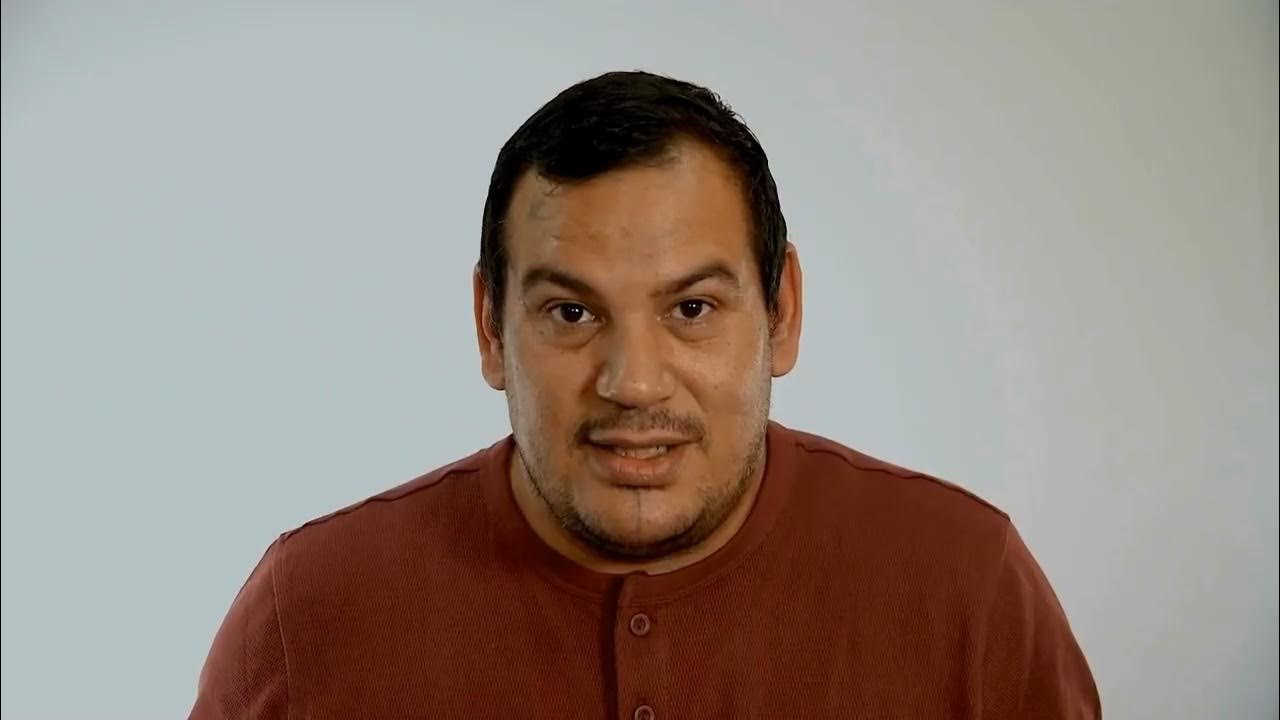Beyond Unceded Territories (includes both French and English subtitles)
Summary
TLDRThe transcript is an impassioned plea by Indigenous artist Lawrence Paul Yuxweluptun against capitalism's destructive impact on the environment and Indigenous rights. He criticizes the colonial construct and calls for the protection of traditional territories against exploitation. Yuxweluptun uses his art to raise awareness about climate change, the injustices faced by First Nations peoples, and the need for a collective stand against colonialism and environmental degradation.
Takeaways
- 💰 Capitalism is viewed as inherently incompatible with equality and universal human rights, as it prioritizes profit over social justice.
- 🌎 The script criticizes capitalism for its destructive impact on the environment, including deforestation, pollution, and climate change.
- 🎨 The artist Yuxweluptun uses virtual reality and art to make people experience the consequences of their actions as 'super predators', aiming to raise environmental awareness.
- 🐻 The artist identifies as a defender of the land and criticizes colonialism and its ongoing impact on indigenous peoples and their territories.
- 🇨🇦 Yuxweluptun asserts his indigenous identity and refuses to surrender his land to Canadian authorities, emphasizing the unceded nature of his territory.
- 🌿 The script highlights the importance of protecting traditional territories from exploitation, such as pipelines and oil spills, for the sake of the environment and future generations.
- 🚫 There's a call to action against colonialism and its destructive practices, urging people to join in protest and resistance.
- 🌡️ The script discusses the inability of capitalism to address global warming due to greed and the pursuit of power.
- 🌍 The artist sees colonialism as a global issue that affects indigenous peoples worldwide and uses his art to shed light on their shared struggles.
- 👥 The script emphasizes the power of unity among people in the face of oppressive systems and the need for collective action for change.
Q & A
What is the main concern expressed by the speaker regarding capitalism?
-The speaker expresses concern that capitalism prioritizes profit over equality and human rights, suggesting that it lacks the will to provide freedom and equality for everyone.
What does the speaker criticize about the current economic system?
-The speaker criticizes the current economic system, specifically capitalism, for its role in environmental destruction, exploitation of natural resources, and disregard for the biosphere.
What is the purpose of the virtual reality project mentioned in the script?
-The purpose of the virtual reality project is to put the audience in the body of a 'super predator' to make them realize the destruction they are causing, experiencing the joy of creation while simultaneously destroying the environment.
What does the speaker suggest is the cause of environmental issues like global warming?
-The speaker suggests that the cause of environmental issues like global warming is capitalism and the relentless pursuit of profit, leading to the exploitation of natural resources and disregard for the environment.
What is the significance of the speaker identifying as the Great Spirit bear?
-Identifying as the Great Spirit bear signifies the speaker's connection to the land and his role as a protector of the environment, emphasizing the sacredness of the land and the responsibility to care for it.
What is the speaker's stance on unceded territories?
-The speaker asserts that the land has never been surrendered and will not be given up to any outsiders, including Canadians or their queen, emphasizing the indigenous people's right to their land.
How does the speaker describe the role of art in his work?
-The speaker describes the role of art in his work as a means to enlighten, entertain, and provide joy, as well as to record history and confront modern issues, particularly those related to colonialism and indigenous rights.
What is the message behind the speaker's statement about pipelines and tankers?
-The message behind the speaker's statement about pipelines and tankers is a call for environmental protection and opposition to projects that could harm the land and biosphere, reflecting a stance against colonial exploitation.
What does the speaker imply about the future under the current capitalist system?
-The speaker implies that if the current capitalist system continues unchecked, it will lead to environmental catastrophe, the extinction of many species, and a world dominated by greed and power.
What is the speaker's view on the potential of a socialist or communal world?
-The speaker views a socialist or communal world as a potential solution to the problems caused by capitalism, suggesting that it could lead to a more equitable distribution of resources and a world where everyone's needs are met.
How does the speaker connect the issues faced by indigenous peoples to global issues?
-The speaker connects the issues faced by indigenous peoples, such as land rights and environmental destruction, to global issues by highlighting the shared colonial experiences and the fight against exploitation and destruction of homelands worldwide.
Outlines

This section is available to paid users only. Please upgrade to access this part.
Upgrade NowMindmap

This section is available to paid users only. Please upgrade to access this part.
Upgrade NowKeywords

This section is available to paid users only. Please upgrade to access this part.
Upgrade NowHighlights

This section is available to paid users only. Please upgrade to access this part.
Upgrade NowTranscripts

This section is available to paid users only. Please upgrade to access this part.
Upgrade Now5.0 / 5 (0 votes)





